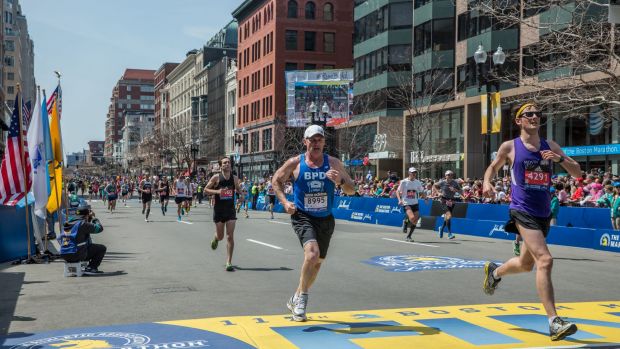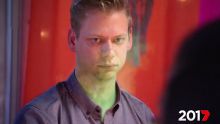FILM
PATRIOTS DAY ★★½
(M) General release (133 minutes)
The 2013 Boston Marathon bombings were back in the news this week, after White House press secretary Sean Spicer invoked them in defence of the President's controversial travel/immigration order – though as commentators were quick to point out, the connection is tenuous at best.
More Trailers Videos
Trailer: Patriots Day
An account of Boston Police Commissioner Ed Davis's actions in the events leading up to the 2013 Boston Marathon bombing and the aftermath.
That makes the docudrama Patriots Day a more topical film than could have been anticipated by its director Peter Berg, a specialist in gritty yet uplifting Americana.
The film gives a conventionally procedural account of the bombings and the subsequent manhunt, tracking events hour by hour and cutting between various characters caught up in the drama. To maximise immediacy, Berg and cinematographer Tobias Schliessler rely on long lenses and handheld camerawork, with aerial shots of Boston locations to help us keep our bearings.

Also helping orient us is the composite figure of Tommy Saunders (Mark Wahlberg) a detective sergeant with a hair-trigger temper, a bung knee and a drinking problem, demoted to working the beat during the marathon. Despite his failings, he's the film's sturdy hero, a man of the people whose gut instincts are seldom wrong.
Much of this feels familiar or worse, especially the cringeworthy finale. Yet Berg is a filmmaker of some artistic ambition, and there are occasional intentionally discordant notes – including a menacing electronic score by Trent Reznor and Atticus Ross.
The mosaic form of Patriots Day accords with the theme of a community gradually coming together to root out evil. Yet it also leaves a disquieting impression of a society where everyone is under surveillance at all times, reinforced by the use of actual archival footage shot by news crews, security cameras, and civilians with mobile phones.
While Berg may not have a great deal of insight into the mindset of those behind the bombings, he avoids turning them into simple demons. Dzhokhar Tsarnaev (Alex Wolff), the more relatable of the pair, is portrayed as a slacker college student whose motive, as much as anything, seems to be to live up to the standards of his more focused older brother Tamerlan (Themo Melikidze).

Equally intriguing is the portrayal of the shadowy figure of Tamerlan's wife Katherine Russell (Melissa Benoist), an American-born convert to Islam. Russell was never charged with anything, but the film comes as close as it dares to accusing her of complicity in the attacks.
In the most electric scene, she refuses to crack under pressure from a female interrogator (Khandi Alexander), affirming a Muslim wife's duty to submit to her husband as well as to God. There's a respect for mystery here, coupled with a voyeuristic fascination – as if Berg felt obliged to acknowledge a realm which cameras cannot reach.















